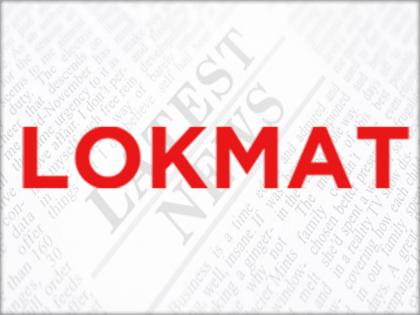Morocco makes major progress in King Mohammed VI's rule
By IANS | Published: July 29, 2019 03:00 PM2019-07-29T15:00:08+5:302019-07-29T15:10:23+5:30
Morocco will on Tuesday celebrate 20 years of the reign of King Mohammed VI, who has helped steer his North African nation over the years, not just building up the economy and strengthening its social structures, but also forging stronger ties with the world, especially across the African continent.

Morocco makes major progress in King Mohammed VI's rule
Mohammed VI, who ascended the throne on July 23, 1999 on the death of his father, King Hassan II, has also taken care to promote moderate Islam in the country and ensure that extremism and fanaticism is nipped in the bud.
Towns and cities across the kingdom of 35 million people have been decked out with flags to mark the anniversary. Morocco, which borders the North Atlantic Ocean and the Mediterranean Sea, is known as the gateway to Africa.
One of the successes of Mohammed VI's reign has been his country re-admission into the African Union in January 2017 - after 33 years. Rabat had left the AU in 1984 after a disagreement over the status of the Sahara region, which Morocco has claimed as its territory.
The country has also applied for membership of the powerful Economic Community of West African States (ECOWAS), a 15-nation bloc. Western Africa is among the fastest growing regions in the African continent, accounting for 25 per cent of total GDP of Africa.
With his focus on building ties with other African countries, the king criss-crossed across the continent, making over 50 visits to forge ties with neighbours, both near and distant. His visits resulted in the inking of over 1,000 cooperation agreements in various fields, including economic, political, security and renewable energy.
Through his efforts, Morocco has become the second largest African investor in the continent, and between 2003 and 2013, 51 per cent of its foreign direct investment went to Sub-Saharan Africa, peaking at 88 per cent in 2010. Morocco's trade with the rest of Africa increased by 12 per cent annually between 2003 and 2013. In 2016, it stood at $3.1 billion.
Morocco has also positioned itself as a leader in fighting climate change on the continent. It hosted the UN Climate Change Conference COP22 in 2016 in Marrakech. Focusing on solar energy in a big way, Morocco has launched one of the world's largest solar energy projects - the Noor Concentrated Solar Power - costing an estimated $9 billion. The aim of the project is to create 2,000 megawatts of solar generation capacity by 2020.
On the domestic front, the king has instituted reforms including in the political, constitutional, legislative, administrative and social spheres.
He also tackled some major crises during the 20 years. These include a terrorist attack in Casablanca on May 16, 2003, when a dozen suicide bombers killed 33 people and wound scores in the economic capital of Casablanca. Most of the victims were Moroccan.
The Parliament adopted an anti-terrorism law which considerably strengthened judicial and police powers. In a crackdown, nearly 8,000 Islamists were arrested.
In 2004, the king announced religious reforms aimed at countering the rise of fundamentalism.
On April 28, 2011, a bomb attack on a cafe in Marrakesh left 17 dead, including foreign tourists.
A massive quake rocked rural areas near the Mediterranean port city of Al Hoceima on February 24, 2004, killing hundreds.
The Arab Spring also saw thousands of Moroccans join marches in February 2011 against the monarchy. However, the king tackled the uprising by offering constitutional reforms. A new Constitution was passed by a July 2011 referendum that strengthened the powers of the prime minister and parliament.
However, the king wields overarching authority as head of state. He is chief of the military and the country's top Islamic authority.
In a statement, the Moroccan government said that during the last 20 years, the kingdom has "experienced a series of political, administrative and legal reforms in the field of human rights" and the "creation of a number of institutions working in the field of the promotion and protection of human rights", and a new Constitution.
"Through this Constitution, Morocco has undergone very thorough reforms, such as expanding the scope of citizens' rights and freedoms, the independence of the judiciary from the other executive and legislative powers, and strengthening the powers of the government and Parliament. The Amazigh language has been recognized as an official language in the same way as Arabic, having been valued in the early years of the reign of Mohammed VI with the creation in 2001 of the Royal Institute of Amazigh Culture, it said.
On women's issue, the King is "leading a remarkable process of modernizing the status of Moroccan women; as he emphasized in several speeches the need to promote the role of women". The reform of the family code was one of the biggest projects initiated by the king in 2004.
In 2004, the Equity and Reconciliation Commission (IER) was set up to investigate Serious violations of human rights during the years 1956 and 1999.
( With inputs from IANS )
Open in app